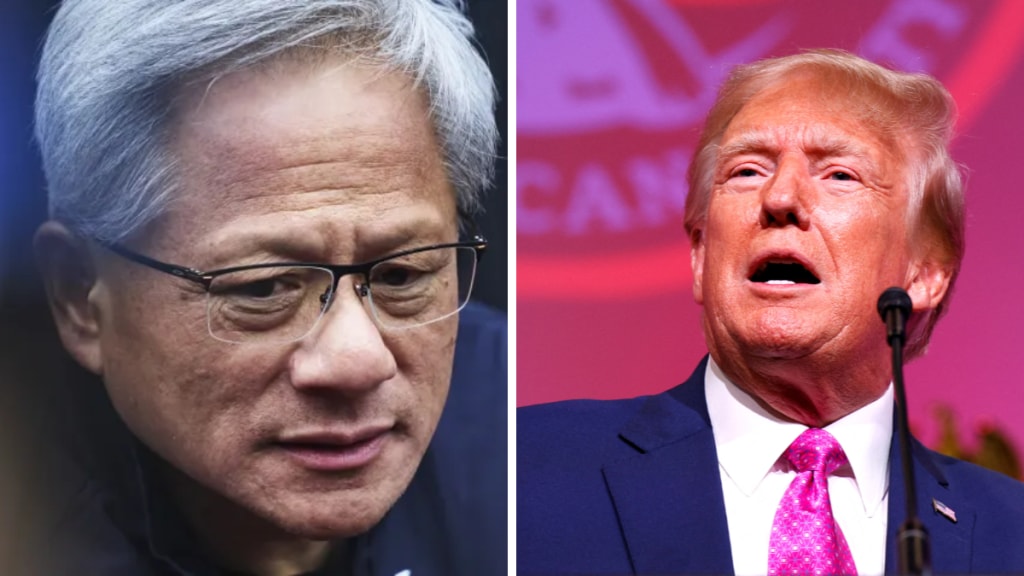Nvidia shares fell sharply, dropping about 6%, after the company announced it would take a $5.5 billion charge linked to new US government restrictions on exporting its H20 artificial intelligence (AI) chips to China. The H20, Nvidia’s most advanced AI chip currently available in China, had become a critical product for the country’s booming AI sector.
The Donald Trump-led US government formally informed Nvidia on April 9 that it would require a license to export the H20 to China and other countries, citing national security concerns. Five days later, officials said those export rules would remain in place indefinitely, according to Nvidia’s regulatory filing. It remains unclear whether any of those licenses will be granted.
What is H20 chip?
The H20 chip was designed to push performance limits without breaching US export controls first introduced during the Biden administration and expanded in 2023. Chinese tech giants including Tencent, Alibaba, and ByteDance had reportedly been ramping up H20 purchases to meet surging demand for cost-effective AI models.
Though slower at training AI models than Nvidia’s US chips, the H20 excels at inference—the stage where AI models deliver real-time results to users. Nvidia CEO Jensen Huang has said this is set to become the dominant part of the AI chip market.
Despite its limits, US officials flagged the H20’s high-speed connectivity capabilities, which could make it valuable for supercomputing applications in China. Washington has prohibited sales of AI chips for use in Chinese supercomputers since 2022.
A Washington-based think tank, the Institute for Progress, warned that companies like Tencent may already be deploying H20 chips in facilities that breach those restrictions.
AI chipmakers hit
Alongside Nvidia’s after-hours slide, shares of AMD dropped 7%, while Broadcom shed nearly 4%, as investors weighed the broader implications of escalating US-China tech tensions.
(With Reuters inputs)
